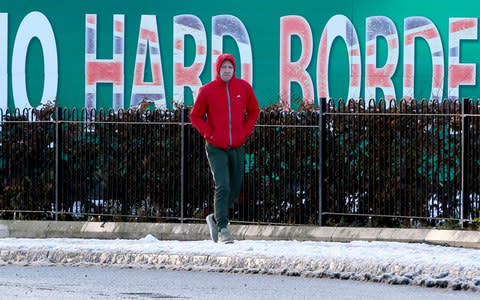No Brexit deal could be 'catastrophic' for food and drink sector, say industry experts

No deal in the Brexit negotiations could be “catastrophic” for the food and drink industry and could lead to prices spiking by as much as 10pc, industry experts have told MPs.
The Business, Energy and Industrial Strategy Committee heard from food and drink industry trade bodies and companies about the potential hit to consumers if frictionless trade is lost with the EU and tariffs applied.
Ian Wright, director general of the Food and Drink Federation, claimed a situation where no deal had been agreed on trade for the EU would be “pretty catastrophic” for the food and drink sector.
“We’re not going to run out of food but it will mean choice, availability and profitability will be impaired,” he said.
Mr Wright suggested the UK enjoyed the most choice when it came to food at different price points compared to any other country and that it was this which was “at risk” as well as the potential economic impact higher prices could have.
Andrew Kuyk, director general of the Provision Trade Federation, thought the likes of customs procedures, such as border checks, and tariffs could lead to prices rising steeply, particularly in the short term.
“If we look at a situation where we potentially face tariffs we will also then potentially face customs procedures and other regulatory things, and various estimates have been done that these could alone add somewhere up to 10pc to prices through those regulatory issues we don’t have to deal with at the moment being part of the single market.”
Mr Wright was more conservative with his estimates of price rises because of the “extraordinary level” of competition between the UK’s supermarkets but still reckoned on a 7pc to 10pc hike.
“In the event of a no deal I think you will see food prices rise,” he said.
But he suggested retailers provided the potential for a “huge amount of mitigation” considering food price rises were not mirrored in magnitude by the fall in sterling immediately after the Brexit vote.
“Prices rose considerably less than we expected [after the Brexit vote] so you can’t be absolutely sure what would happen in the event of a no deal,” he added.

Ian Rayson, corporate affairs director at Nestle warned that if the UK resorted to using World Trade Organisation terms of trade, he predicted the company’s costs would “increase quite substantially” in terms of raw materials and packaging but did not say whether these would be passed on.
Diageo’s corporate relations director Dan Mobley said the company had estimated it would cost it about £1.3m extra if each of its 18,000 truck movements across Ireland’s border. He said given the company had global sales of £18bn this was manageable but the company said it would be concerned in such a scenario for some of its suppliers.
“This is not going to add to the price of Baileys but the concern would be for the supply chain because there could be tariffs on dairy and administrative delays that we can swallow but smaller businesses would struggle to,” he said.
Kate Nicholls, chief executive at the Association of Licensed Multiple Retailers, added customers had become used to a period of low prices and so rises in the cost of food and drink could hit her members as consumers might go out less frequently.
The panel said it welcomed suggestions by the Government that EU workers would be allowed to remain in the UK given the sector’s reliance on non-UK workers.
Panel members also added some optimism, stating some of the roughly 40pc of food that the UK imports could be produced by domestic companies post-Brexit. They also said that the nation could also work to improve the amount of food it exports, which lags behind other nations.

 Yahoo Finance
Yahoo Finance 